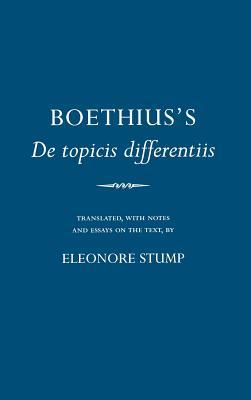
On Topical Differences
By Boethius
522
First Published
4.22
Average Rating
264
Number of Pages
In Ciceronis Topica and De topicis differentiis are Boethius' two treatises on Topics (loci). Together these two works present Boethius' theory of the art of discovering arguments, a theory that was highly influential in the history of medieval logic.
Avg Rating
4.22
Number of Ratings
18
5 STARS
50%
4 STARS
22%
3 STARS
28%
2 STARS
0%
1 STARS
0%
goodreads
Author

Boethius
Author · 7 books
Anicius Manlius Severinus Boëthius, commonly called Boethius (bow-EE-thee-us; ca. 480–524 or 525 AD) was a philosopher of the early 6th century. He was born in Rome to an ancient and prominent family which included emperors Petronius Maximus and Olybrius and many consuls. His father, Flavius Manlius Boethius, was consul in 487 after Odoacer deposed the last Western Roman Emperor. Boethius, of the noble Anicia family, entered public life at a young age and was already a senator by the age of 25. Boethius himself was consul in 510 in the kingdom of the Ostrogoths. In 522 he saw his two sons become consuls. Boethius was imprisoned and eventually executed by King Theodoric the Great, who suspected him of conspiring with the Eastern Empire. While jailed, Boethius composed his Consolation of Philosophy, a philosophical treatise on fortune, death, and other issues. The Consolation became one of the most popular and influential works of the Middle Ages. A link between Boethius and a mathematical boardgame Rithmomachia has been made.